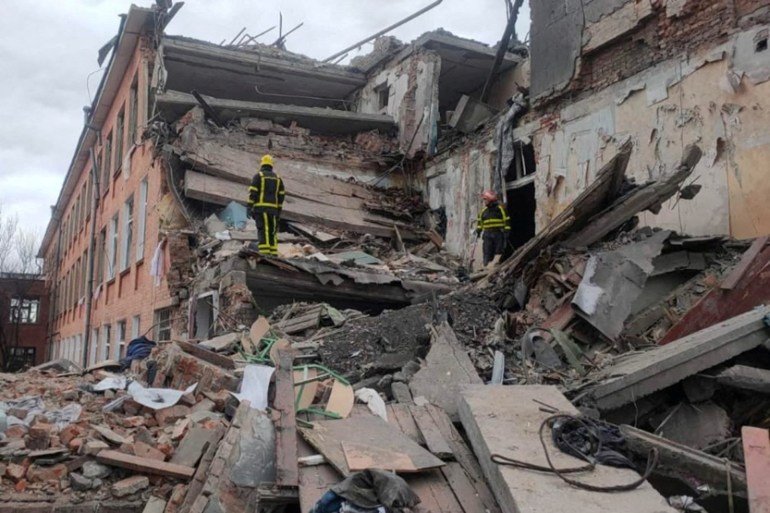We don't know exactly how the war in Ukraine will end, but it clearly represents a turning point in recent history, according to an article in the Wall Street Journal.
Journalist William Galston sees in his article in the newspaper that the Russian invasion of Ukraine was a harsh reminder to Western leaders of the importance of having a strict force, and it brought about several changes, the first of which ended the debate about the purpose of the North Atlantic Treaty Organization (NATO) and the possibility of its expansion.
stronger alliance
Galston says that strategists who feared that opening the door to NATO expansion to Central European and Baltic countries would provoke Russia now see that the Russian invasion of Ukraine has made NATO expansion inevitable.
We have seen how countries such as Finland and Sweden - which were previously reluctant to join the alliance - are now on the verge of applying for membership.
Referring to the shift in European leaders' position on the importance of the alliance and its role after the war, Galston says it is unlikely that Emmanuel Macron, who was recently re-elected as France's president, will renew his repeated accusations that NATO is in a state of "brain death".
The writer believes that NATO will emerge from the Ukrainian war more powerful, united and effective.
The Russian invasion destroyed a lot of infrastructure in Ukrainian cities (Al-Jazeera)
Germany and Russian energy
The second major change brought about by the Ukrainian war is that it changed Germany, which abandoned the foreign and defense policy shaped by memories of World War II and pledged to rebuild its army and increase military spending by about 2% of GDP, according to the article.
Berlin has relaxed its restrictions on arms supplies to countries involved in military conflicts, and recently agreed to send heavy weapons to Ukraine.
The third important change brought about by the war, Galston says, was forcing European countries to reduce their dependence on Russian energy.
He believes that the decision to dispense with Russian oil and gas will be painful for the West in light of the scarcity of supplies and high prices.
But even Germany, whose extensive energy relations with Russia have long been a strategic weakness for the West, now realizes that it is inevitable to dispense with Russian energy.
The writer also believes that this decision will compel Europe to focus during the next decade on accelerating its transition to renewable energy sources, with the replacement of Russian fossil fuels with energy supplies from the Middle East, Africa and the United States, which will require an extensive program to prepare its ports accordingly.
Galston mentioned other aspects of the changes brought about by Russia's war on Ukraine, including that the war refuted the belief that prevailed since the First World War, which is that economic considerations dominate politics and make some options out of the question.
In this context, Vladimir Putin went ahead with his decision to invade Ukraine, even though the decision would lead to a severe economic recession in Russia and a potentially long-term economic decline that would affect living standards in the country.
But Putin's desire to eliminate a potential threat to his legitimacy and his pursuit of his dream of re-establishing the Russian Empire were more important than economic considerations, according to the author.

